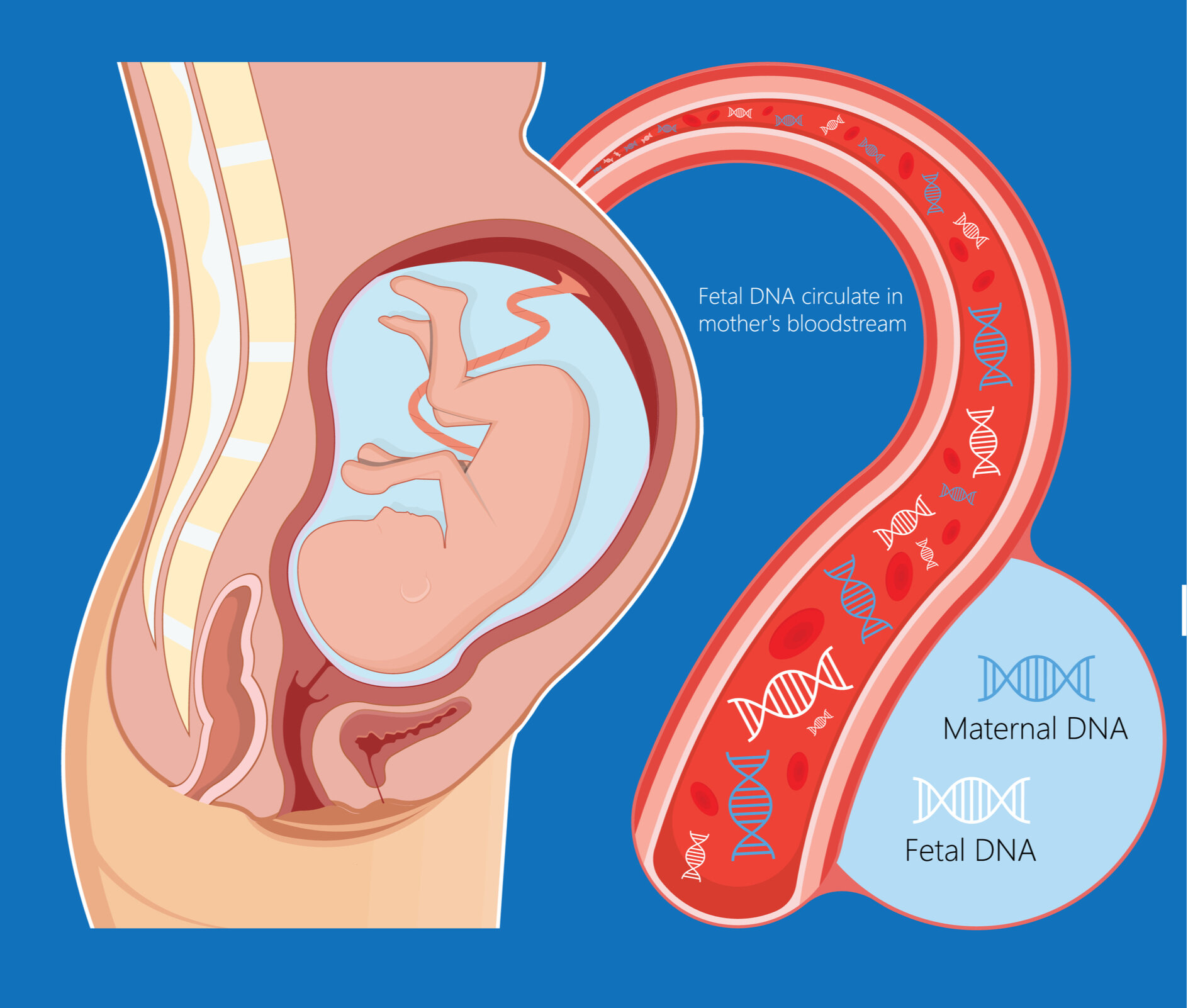What is an Amniocentesis?
Amniocentesis is a diagnostic test that is carried out during pregnancy. It can assess whether the unborn baby (foetus) could develop, or has developed, an abnormality or serious health condition.
The Procedure
Amniocentesis is carried out after week 15 of the pregnancy. A needle is used to extract a sample of amniotic fluid, the fluid that surrounds the foetus (the developing baby) in the womb (uterus). The amniotic fluid contains cells shed from the foetus that can be examined and tested for a number of conditions.
Chorionic villus sampling (CVS) is an alternative diagnostic test that can be carried out during weeks 10 to 13 of pregnancy. S
What is Amniotic Fluid?
Amniotic fluid is the fluid surrounding the baby. Cells in the amniotic fluid contain the baby’s DNA (Fetal DNA) as well as the mother’s DNA (Maternal DNA).
Testing these cells can tell us a lot about the health of the developing baby and diagnose any potential problems.
Amniotic fluid (the fluid that surrounds the foetus in the womb) contains cells that have been shed from the skin of the developing baby, and the waste products from the baby.
Every cell in the amniotic fluid that has been from the baby contains a complete set of the baby's DNA. Therefore, the cell samples obtained during amniocentesis are very useful for assessing the developing baby's health and diagnosing any potential problems.
Amniocentesis gives healthcare professionals direct information about how likely the baby will develop one or more of a number of conditions, which may be genetic (inherited) or develop during the pregnancy.
Why It Is Done?
Amniocentesis can be used to detect a number of conditions such as:
Down's syndrome- a genetic condition that affects a person's physical appearance and mental development
spina bifida -a series of birth defects that affect the development of the spine and nervous system
sickle cell anaemia - a condition that causes unusually shaped red blood cells
Some factors that could increase the risk of an abnormality include:
the mother's age
the mother's medical history
a family history of genetic (inherited) conditions
What Can It Diagnose?
Amniocentesis can diagnose many different conditions. Some of these are described below.
Chromosomal Conditions
Chromosomal conditions are conditions that affect the chromosomes (the parts of the body's cells that carry genes). For example:
Down's syndrome - a condition that affects a person's physical appearance, mental development and learning ability; it is the result of an extra chromosome, known as trisomy-21
Edward's syndrome - a condition that causes severe physical and mental abnormalities; it is the result of an extra chromosome, known as trisomy-18
Patau's syndrome - a rare but serious condition where babies rarely survive for more than a few days; it is the result of an extra chromosome, know as trisomy-13
Blood Disorders
Amniocentesis can also be used to check for inherited blood disorders, such as:
sickle cell anaemia- a condition where red blood cells (which carry oxygen around the body) are an unusual shape and texture
thalassaemia - a condition that affects the body's ability to create red blood cells
Neural Tube Defects
Amniocentesis can test for neural tube defects. The neural tube is a primitive tissue structure inside which the embryo (fertilised egg) grows during its first month of life. As the embryo develops, the neural tube changes and eventually forms the spine and nervous system.
A neural tube defect can lead to conditions such as spina bifida, which can cause learning difficulties and paralysis (weakness) of the lower limbs.
Muscoskeletal Disorders
Amniocentesis can also be used to diagnose conditions that affect the musculoskeletal system (your bones and muscles), such as muscular dystrophy. Muscular dystrophy is an inherited condition that causes the muscles to gradually weaken, resulting in an increasing level of disability.
Other Genetic Conditions
In addition to diagnosing chromosomal conditions, blood disorders, neural tube defects and musculoskeletal disorders, amniocentesis can also be used to help diagnose a number of genetic conditions, such as Marfan syndrome. This condition affects the tissues that provide support and structure in the body.
If there is a risk of an inherited condition being passed to your baby - for example, there is a family history of the condition, then your GP, midwife or genetic counsellor will explain the risk to you and your partner. A genetic counsellor is a healthcare professional who helps people to understand and deal with genetic conditions.
Something to also discuss with your physician is the option for - Non Invasive Prenatal Testing (NIPT) which is a simple blood test which analyses cell-free fetal DNA circulating in the mother’s blood, and can be done after 10 weeks gestation. For more information check out our post on this.
NIPT Testing
Have a question for us? Feel free to reach out to us hello@thefertilitytalk.com. Alternatively, join us on Instagram @thefertilitytalk




